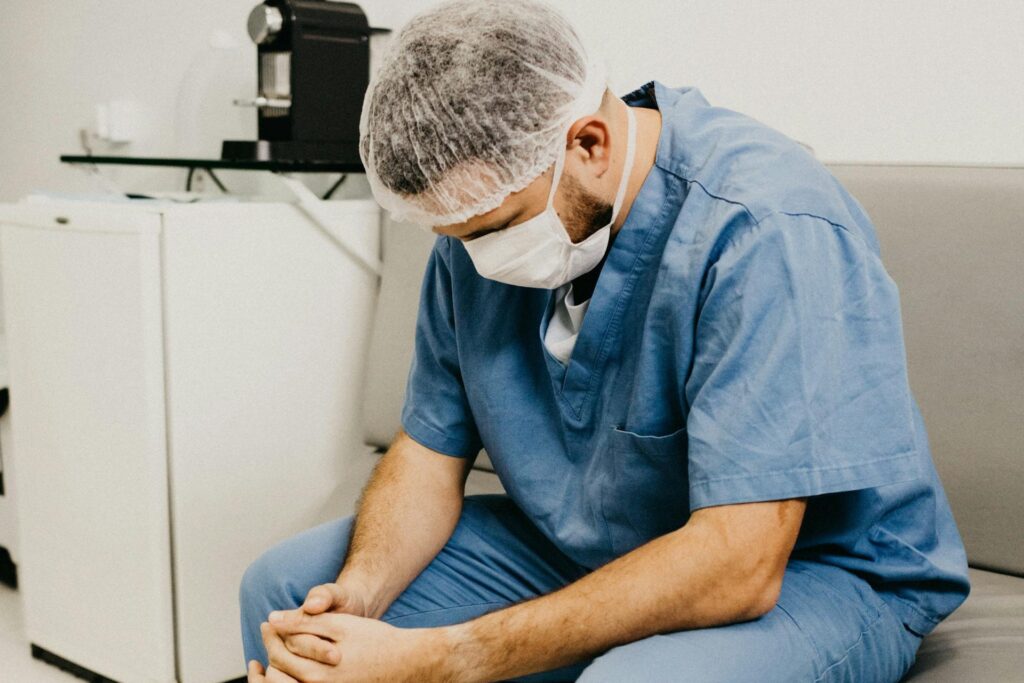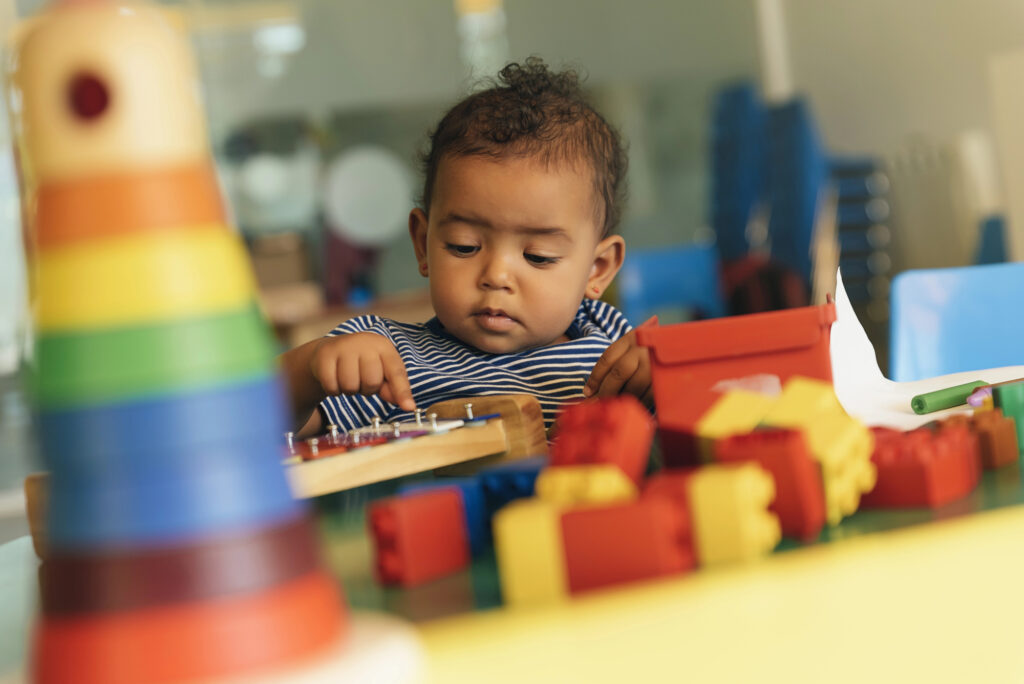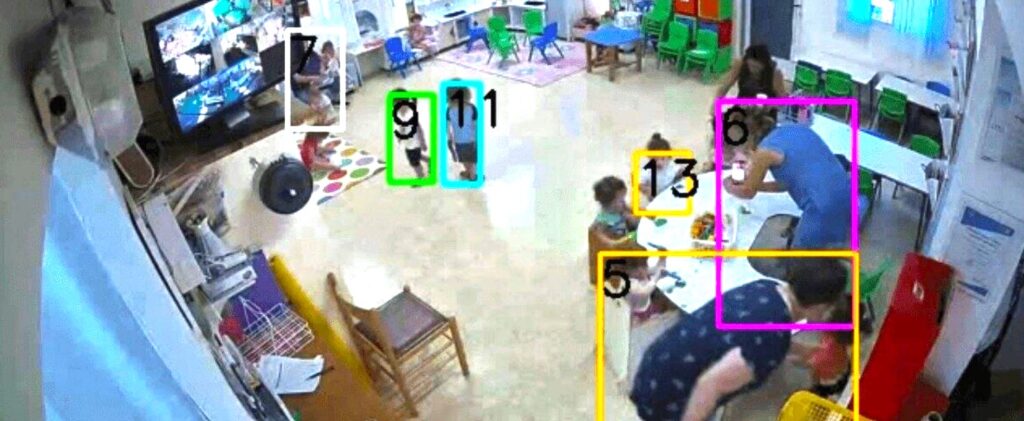British poet William Blake once mused that ‘hindsight is a wonderful thing, but foresight is better.’
And Israeli startup EyeKnow AI is making foresight possible for the most vulnerable in society, with a prevention-focused safety platform that uses artificial intelligence to predict hazardous and violent incidents such as falls, slips and physical violence, in hospitals and care facilities.
“Our goal is to provide an alert as early as possible via a mobile app, so they can go and intervene,” EyeKnow AI founder and CEO Tomer Sagi tells NoCamels.
Rather than using security cameras to review a scene and understand what happened after an incident has occurred, EyeKnow issues an alert for a potential crisis before it happens, or at the very least while it is actually occurring.
The AI platform monitors video feeds and picks up on indicators of safety hazards and violence, even integrating with any kind of store-bought camera. By detecting aggressive movements and potential threats and taking note of passage obstructions, EyeKnow’s AI is able to raise an alert before a situation spirals into a full crisis.

Today, four years after its creation, the company’s main focus is on hospitals, where they seek to prevent violence both of patients towards staff and towards themselves, as well as other common safety hazards like slips and falls.
According to the World Health Organization, health workers worldwide face a high risk of violence, with up to 38 percent of them experiencing physical attack at some stage of their careers. The WHO also says that patient falls are the most frequent adverse events in hospitals, happening at a rate of 3 to 5 per every 1,000 bed days, and one third of those incidents result in injury.
To help prevent such violent incidents, EyeKnow installs a server that connects to an institution’s security cameras. They can then link up the staff to the system with the use of a mobile app or on big screens in a central security room.
Staff and security professionals receive real-time notifications, alerting them to the location of a possible incident so that they can take preventive measures or deescalate a situation using their own procedures.
“Every hospital has their own procedures and processes to tackle violence and prevent violence,” Sagi explains.
He stresses that a security camera on its own can only do so much. While it can be helpful to have a camera installed to oversee a childcare provider or an elderly parent with a caregiver, that camera itself cannot prevent an incident or stop one once it has begun.

The idea for the company came to Sagi in 2019, when he began to be alarmed at the rate of abuse in daycare facilities. Indeed, the United Nations Children’s Fund (UNICEF) cites daycare centers as one of the main settings for violence towards children.
“It started from there,” Sagi says of the initial idea for what would become EyeKnow AI. “I wanted to build a system that can detect violence in daycares, to alert somebody so they can prevent it and stop it.”
Sign up for our free weekly newsletter
SubscribeHe also says that the system could be used for monitoring care for the elderly, both in nursing facilities and in private homes.
But despite some traction in care facilities, a significant pull came from an unexpected market — the healthcare industry. EyeKnow AI was approached by an Israeli psychiatric hospital that was in search of a system to combat violence against their staff and other patients, as well as self harm among patients.
The company was able to work with the hospital to determine early signs of aggression before they became a threat.
The new design partnership also brought the opportunity to address additional issues faced by mental health care facilities.
With this new interest in the healthcare industry, in 2022, EyeKnow won first place in a competition jointly hosted by Henry Ford Health, a leading Michigan-based health organization, and Israeli NGO Startup Nation Central. EyeKnow was chosen from a roster of some 40 early-stage Israeli startups creating solutions for safety and efficient care in nursing.
“It was a surprise to me, to be honest,” says Sagi of the competition. “I knew that violence was a problem. I didn’t know it was a big problem.”
And a year later, EyeKnow signed a contract with Henry Ford Health, which Sagi says is a relatively fast timeline in the health industry.

While Sagi says there is always competition in the field, EyeKnow’s rivals are more in the broader sense. There are firms such as HP and other video analytics companies that do offer some violence detection capabilities, but EyeKnow says it is unique in that it is predictive technology solely focused on safety.
“We’re looking at safety as a platform. We’re looking at identifying early signs,” Sagi says.
With design partners in health facilities in both the US and Israel, and funding from a combination of angel investors and accelerators including Tel Aviv-based Techstars, EyeKNow AI is now eager to move forward.
Sagi says that the platform does take time to be approved by care organizations as it provides capabilities that weren’t possible until recently, and involves multiple departments.
But EyeKnow is hopeful that once approved, it is able to offer safety to many of the most vulnerable people in society.
Related posts

Editors’ & Readers’ Choice: 10 Favorite NoCamels Articles

Forward Facing: What Does The Future Hold For Israeli High-Tech?

Impact Innovation: Israeli Startups That Could Shape Our Future




Facebook comments